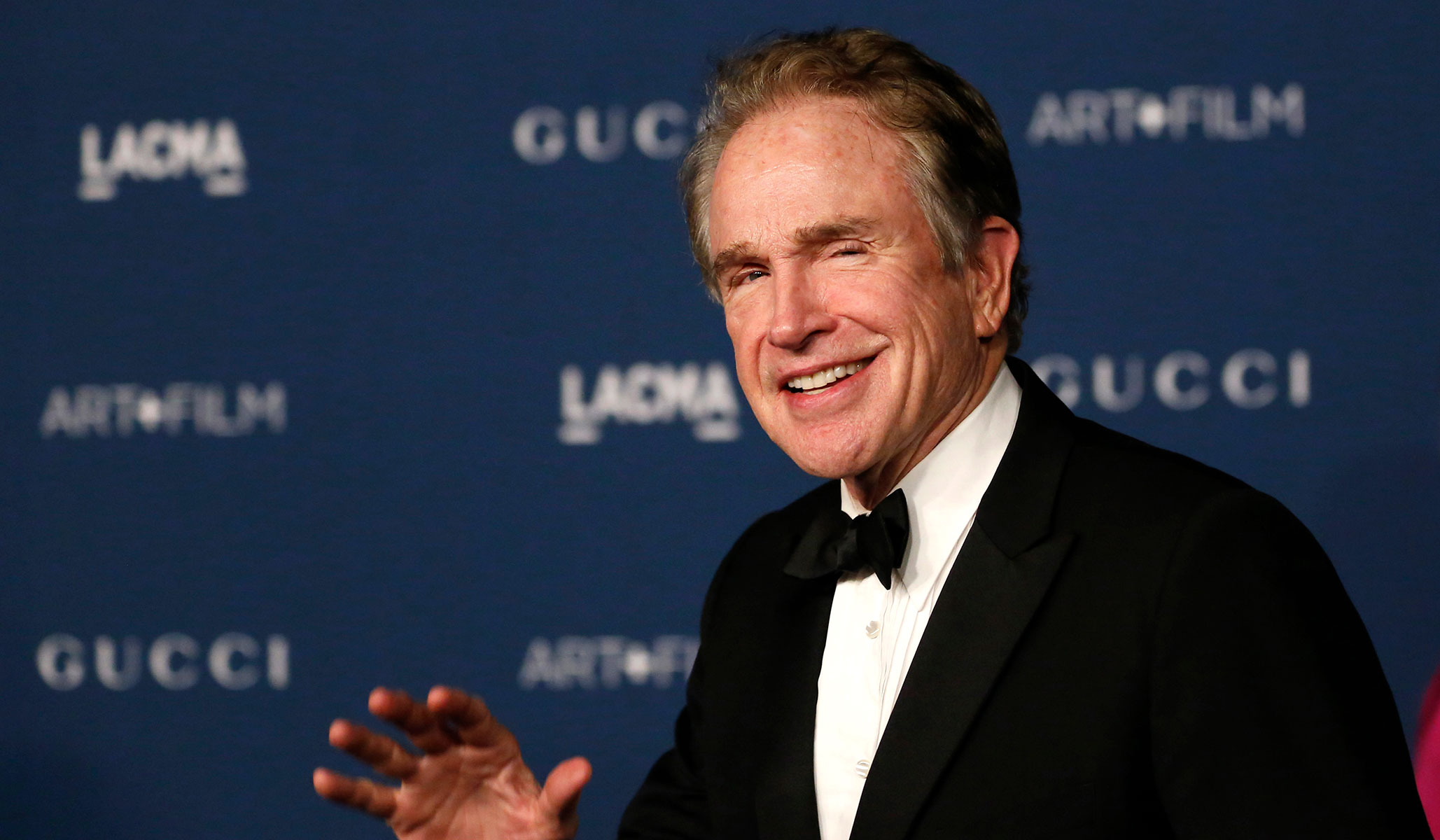


Comic-book movies may not be artistic — unless Zack Snyder makes them — but the popularity of CBM tells us what Millennial consumers want. From the Marvel circuses to the Batman offshoots, CBM has become today’s template for understanding right, wrong, and fun. That explains why 85-year-old actor and filmmaker Warren Beatty tried holding the intellectual-property copyrights of the Dick Tracy comics through a half-hour promotional film, Dick Tracy Special:Tracy Zooms In, recently aired on the Turner Classic Movies channel. It caused a social-media uproar among viewers who either loved it or thought it bizarre, if not lame. Those reactions epitomize our culture’s current quandary.
In 1990, Beatty produced, directed, co-wrote, and starred in a film version of Dick Tracy based on the 1930s comic strip by Chester Gould about a crime-fighting cop and an outré menagerie of ethnic goons. It cost $46 million and grossed $162 million. Disney promoted it as excessively as Warner had promoted Tim Burton’s Batman the year before, yet Dick Tracy never caught fire and is not considered a progenitor of today’s CBM, a problem that Beatty’s special attempts to change.
When the preposterously pandering Ant-Man and the Wasp: Quantumania opened to a $104 million take last weekend, it proved that CBM sets a new credo. With Quantumania, Black Panther: Wakanda Forever, and Doctor Strange in the Multiverse of Madness, Hollywood has gripped what remains of the market’s imagination. Industry-savvy Beatty still wants to be part of it. His persistent intellectual-property ownership means he’s betting on the ultimate appeal of the genre.
Instead of making a new Dick Tracy film, Beatty dresses up as the comic-book character, wearing the trademark yellow overcoat and fedora and speaking in terse Tracy mode (but with a winking hint of movie-star charm, repeating “pomegranates” just as Beatty teasingly repeated “profits” in Reds).
More in Hollywood
-
Kevin Costner’s Career Politics
-
What Is the Worst Film of 2022?
-
Jane Fonda’s Vietnam Actions Were Worse Than You Think
In this postmodern self-parody, Beatty mocks the entire process of Hollywood cannibalization. His Dick Tracy Special was first broadcast back in 2009, reviving Gould’s signature phrase “Crime does not pay.” The family-friendly Dick Tracy contrasted with the “dark” and “chaotic” Batman series and the CBM cultural transformation that sensationalizes crime.
The phrase “Crime does not pay” is eminently sensible, eminently revealing. It defies the cashless bail, “police reform” movement, yet a cagey “creative” like Beatty doesn’t dare risk political conflict in an industry devoted to ideological conformity. (That’s how he could risk his romantic Russian Revolution epic Reds and still be a proud capitalist.) But distilling generic superheroism to the specific heroism of crime-fighting is a bolder, more realistic stance than any by Hollywood’s political progressives who happily indulge nihilism in Joker, Avengers: Endgame, and the various multiverses.
Beatty’s evident affection for fad-chasing Hollywood (he’s disarmingly generous toward Ralph Byrd and Morgan Conway, the actors who preceded his own portrayal of Dick Tracy) connects to his stated affection for Ronald Reagan’s politesse. Tracy imitates Reagan when he jokingly says that Beatty was “running around being what I would call a bit of a knee-jerk liberal,” adding, “That’s something I don’t have a tremendous amount of patience for, I’m a conservative. I don’t want to be judgmental, okay?” That’s old-fashioned liberalism, which was the hallmark of Beatty’s Rules Don’t Apply (2012), a nostalgic view of Howard Hughes in early Sixties Hollywood. But this rebooted Dick Tracy Special evades such political candor. (Politesse or shrewdness?)
Falling back on Gould’s famous dictum is resonant. Beatty vis-à-vis Tracy realizes a crucial cultural need: “I always thought the most important thing was to get the message out to young people that crime does not pay.” This is a reprimand to hip-hop as well as nihilistic CBM. (Don’t expect Scorsese, Spielberg, Spike Lee, or the Daniels to say as much.) Beatty returns morality to culture, just as he did with the 1967 crime drama Bonnie & Clyde, which sparked a cultural revolution. As Tracy, Beatty recalls that Clyde Barrow and Bonnie Parker’s exploits happened “at the height of the crime wave of the Great Depression.” He couldn’t describe the Biden–George Floyd era any better. CBM may be as transformative as Bonnie & Clyde was in its time, only now, CBM doesn’t teach a moral lesson.
Neither did Beatty’s Dick Tracy; it was a mess of commercial aspiration and ineffective artistic pretense. The best part of the Dick Tracy Special comes when the fictional hero critiques the film’s failure, saying, “It gave you a feeling you were in some sort of musical comedy. In fact there were songs in it actually written for the movie by Sammy Sondheim, excuse me, Sidney Sondheim, who’s a very well-respected Broadway producer. . . . I do find some of his songs not the easiest to hum. But he’s highly thought of in the theater world.” This sweet sarcasm (the end credits correctly thank Stephen Sondheim) is uncharacteristic of Beatty but welcome, particularly when redressing the film’s overwrought pseudo-comic-book visual design. Beatty/Tracy doesn’t seem to understand the aesthetics of realism or artifice — except when it comes to portraying right and wrong.
If Beatty never makes another Dick Tracy movie, no one will care. But his latest restatement of principle is significant. In this era of prevarication and mendacity, Beatty’s insistence that “crime does not pay” reproves the many political and media dissemblers who have destroyed social life and made new movies detestable. The Democratic Party critique of Beatty’s 1998 race comedy Bulworth had a similar effect. (More on that to come.)
Beatty justifies this entire Dick Tracy intellectual-property game when he relates the moment of Gould’s original creation to the present: “A sign of the time . . . newspapers are declining. Soon it will be impossible to know where to turn for the truth.” That’s the reality hidden by CBM’s hyperbolic artifice. Tracy/Beatty’s cultural assessment amounts to a state-of-the-movies address.
